Volunteer David Sherman: Always watching out for others
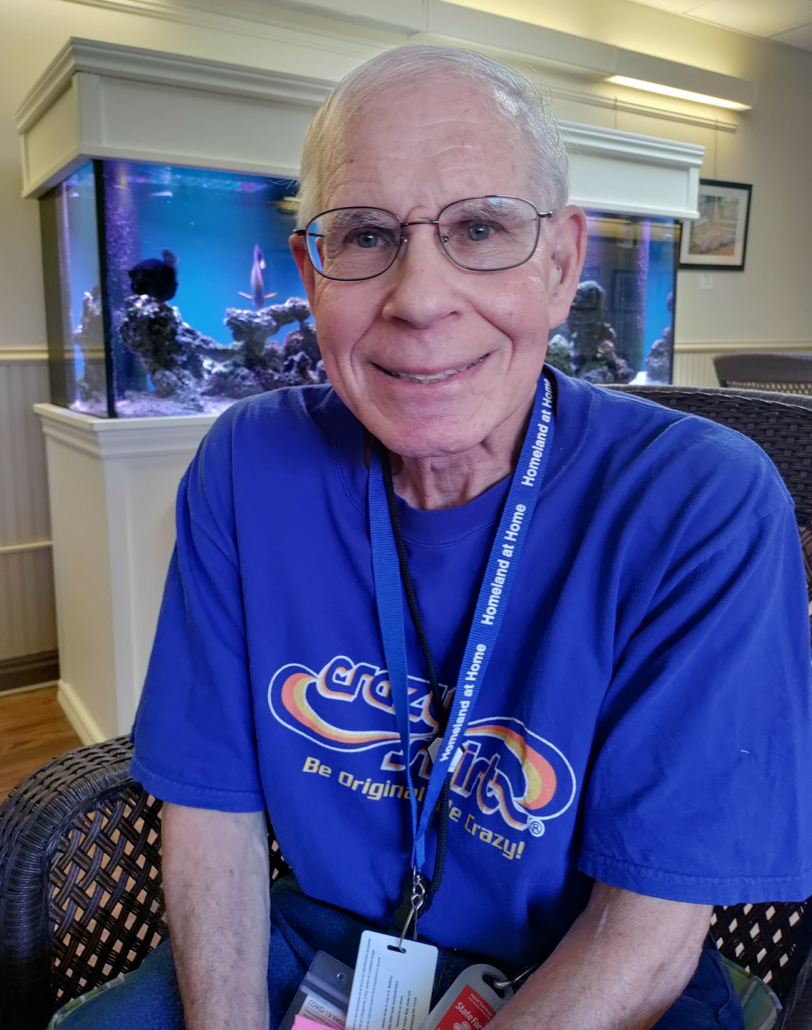 When David Sherman retired from civilian service with the U.S. Navy, 150 people signed the framed picture of the facility where he worked for 41 years, attesting to the friends he made and the impact he had.
When David Sherman retired from civilian service with the U.S. Navy, 150 people signed the framed picture of the facility where he worked for 41 years, attesting to the friends he made and the impact he had.
Now, David can add “Homeland volunteer” to a life full of accomplishment, athletics, and service. Every Thursday afternoon, he is a fixture in the Homeland hallways and gathering spaces, helping residents play dominoes or take a safe walk.
He also volunteers for Homeland Hospice, putting the monthly newsletter in envelopes for mailing. His volunteer service is an extension of his giving nature and a career devoted to protecting people and documents.
“That’s why I’m in security, to help people be safe,” he says.
David is a Harrisburg native, with a life that has taken many interesting turns. At age 2 and a half, he was diagnosed with hearing loss. For 15 years, he received speech and hearing therapy, learning to lipread from a Harrisburg therapist.
After graduating from William Penn High School in 1966, David learned sign language at Gallaudet University and attended the Pennsylvania Rehabilitation Center, in Johnstown. After getting a couple of jobs in Harrisburg, his parents were delighted and proud when he went to the Washington, DC, area and got a job with the U.S. Navy.
That was in 1971, the beginning of his 41-year career at the Naval Surface Warfare Center Carderock Division in Bethesda, MD. He spent 27 of those years in security and document control. Sometimes, his work was classified. He was responsible for picking up documents at the Pentagon for years.
Throughout David’s life, Harrisburg’s Jewish community, and Kesher Israel Congregation, also known as KI, have been constants. He has served on the KI board and had his bar mitzvah in the former synagogue in uptown Harrisburg on July 4, 1960.
In 2022, after the congregation moved to a beautifully renovated new home in Harrisburg’s Riverside neighborhood, David celebrated his 75th birthday with a Kiddush party. As with his bar mitzvah, he received the Aliyah – or call – to read the Torah in Hebrew. Today, David helps provide security at the new synagogue’s entry.
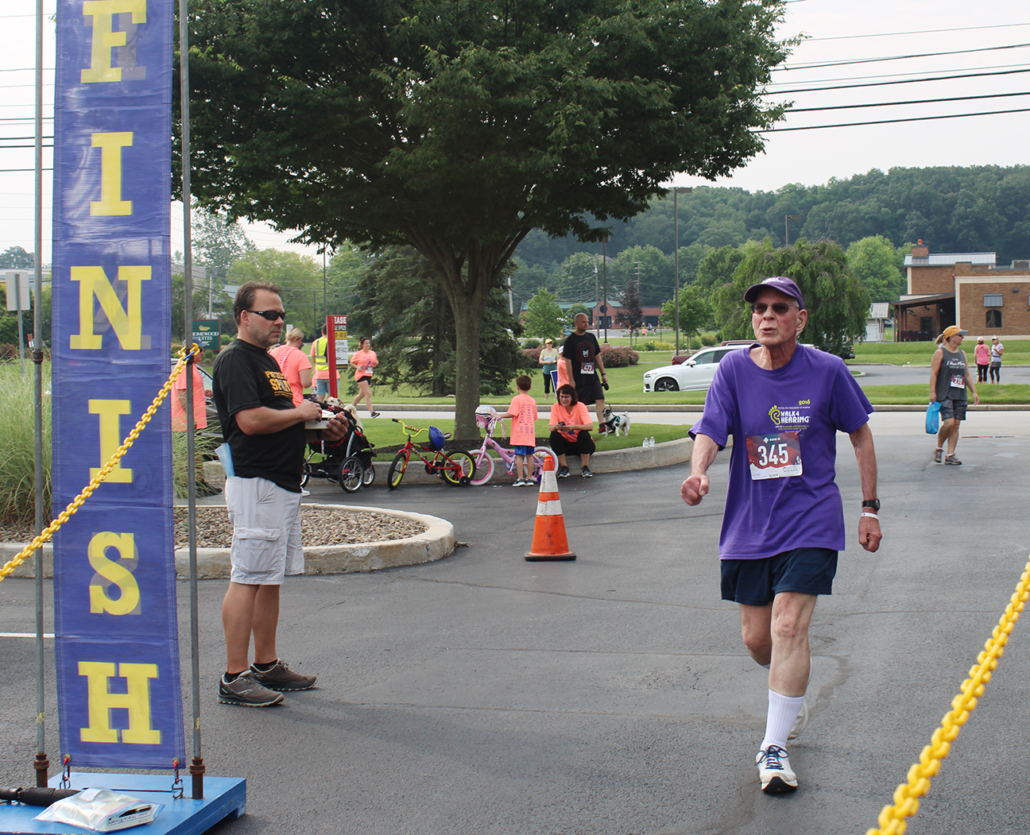 Another thread in David’s life is athletics. In high school, he lettered in cross country and track. He won ribbons for first and second place in the Navy 3K run and walk.
Another thread in David’s life is athletics. In high school, he lettered in cross country and track. He won ribbons for first and second place in the Navy 3K run and walk.
“The walk, I did in 19 minutes,” he says. “I was younger.”
He still runs, winning five ribbons in past Homeland Hospice 5K and Memory Walks and hoping for another at this year’s event on Oct. 22, as long as a bothersome knee heals up. In Bethesda, he also played right field for a softball team that won two championships, including one year when he won MVP.
Even when he lived in Maryland, he would come home on weekends to play basketball at the Jewish Community Center. He also played touch football for a Navy team and flag football for the JCC, where his best friend said he played the best defense.
David is also involved with the Hearing Loss Association of America. For 10 years, he served as treasurer for the organization’s 1,000-member Montgomery County, MD, chapter. He has traveled to 25 association conventions, helping provide security. He attended many of those conventions with his late wife, Deborah Beauregard Sherman, whom he met in a hearing-loss support group.
David retired from the Navy in 2012 and moved back to Harrisburg in 2018. Since 2019, he has filled his days with volunteering – delivering Meals on Wheels Friday mornings, helping at Homeland Center on Thursday afternoons. On Sunday mornings, you’ll find him at the Dauphin County Library System’s East Shore Area Library, where he set a personal record of 92 books shelved in three hours.
For a time, COVID restrictions kept David from coming into Homeland, but Homeland Activities Director Aleisha Arnold invited him back after they were lifted. Now, every Thursday, Aleisha gets a text from David to check that his volunteer shift is still on.
“The residents say how nice he is and warm to them,” Aleisha says. “He’s very pleasant. He’s very relatable to them. He’s very dedicated.”
David returns the compliment.
“I really like it here,” he says. “I’m very happy. Aleisha is happy for me to help people.”

 With a stitch of a needle or stroke of a paintbrush, Amy Zecha of Harrisburg is finding creative methods for channeling her grief following the death of her mother Angelyn. With the help of Homeland Hospice’s bereavement program, Amy has found productive ways to discuss her grief and reconnect with art and crafts, which she has always loved. Homeland Hospice is a nonprofit hospice program that serves communities throughout Central Pennsylvania.
With a stitch of a needle or stroke of a paintbrush, Amy Zecha of Harrisburg is finding creative methods for channeling her grief following the death of her mother Angelyn. With the help of Homeland Hospice’s bereavement program, Amy has found productive ways to discuss her grief and reconnect with art and crafts, which she has always loved. Homeland Hospice is a nonprofit hospice program that serves communities throughout Central Pennsylvania. As the weight of grief lifted for Amy, her creativity returned. Amy has begun painting, drawing, sewing and knitting again. Her mother taught her many of these skills and encouraged her to pursue them as a child.
As the weight of grief lifted for Amy, her creativity returned. Amy has begun painting, drawing, sewing and knitting again. Her mother taught her many of these skills and encouraged her to pursue them as a child.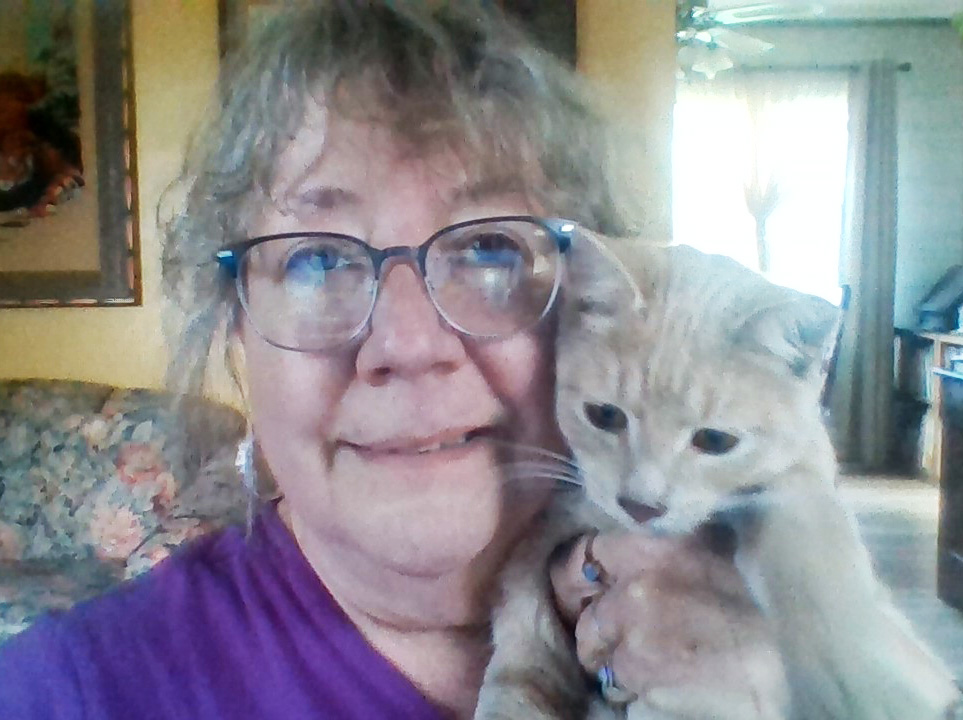 In every aspect of its work, Homeland Hospice brings a team approach to care. Volunteers are an essential part of this group. Through their unique talents and open hearts, Homeland Hospice volunteers bring friendship and kindness to patients during their end-of-life journey and comfort to families who have lost loved ones. Homeland is grateful to all of its volunteers and recognizes their extraordinary efforts.
In every aspect of its work, Homeland Hospice brings a team approach to care. Volunteers are an essential part of this group. Through their unique talents and open hearts, Homeland Hospice volunteers bring friendship and kindness to patients during their end-of-life journey and comfort to families who have lost loved ones. Homeland is grateful to all of its volunteers and recognizes their extraordinary efforts. When the world shut down last spring because of the COVID-19 pandemic, loneliness and isolation crept into many of our lives. Our sense of community compelled us to reach out to those in need at a time when face-to-face contact was not permitted. Our methods of volunteering were changing, but our compassion for others remained the same. During this period of darkness, Allie Lombardi picked up her phone and paintbrushes to bring color to our world.
When the world shut down last spring because of the COVID-19 pandemic, loneliness and isolation crept into many of our lives. Our sense of community compelled us to reach out to those in need at a time when face-to-face contact was not permitted. Our methods of volunteering were changing, but our compassion for others remained the same. During this period of darkness, Allie Lombardi picked up her phone and paintbrushes to bring color to our world.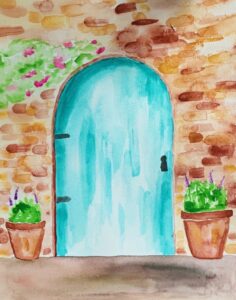 Allie connected with Homeland Hospice through VolunteerMatch, an online service that connects individuals with causes and organizations. Allie’s grandmother is a nurse and her sister is studying nursing in college. In addition, her grandmother has volunteered with her local hospice, making a connection to Homeland an ideal match for Allie. Homeland Hospice is a nonprofit hospice program that serves communities throughout Central Pennsylvania.
Allie connected with Homeland Hospice through VolunteerMatch, an online service that connects individuals with causes and organizations. Allie’s grandmother is a nurse and her sister is studying nursing in college. In addition, her grandmother has volunteered with her local hospice, making a connection to Homeland an ideal match for Allie. Homeland Hospice is a nonprofit hospice program that serves communities throughout Central Pennsylvania. room. She sent the paintings to Homeland where they will be available to hospice patients. In the coming weeks, volunteers will work directly with patients to allow them to select a piece to display. After a month, the paintings will be rotated among patients to allow them to enjoy another work of art.
room. She sent the paintings to Homeland where they will be available to hospice patients. In the coming weeks, volunteers will work directly with patients to allow them to select a piece to display. After a month, the paintings will be rotated among patients to allow them to enjoy another work of art.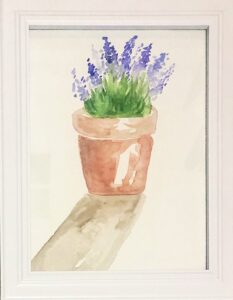 While Allie will never meet the recipients of her artwork or see the smiles it brings to their faces, she knows her time and dedication to this project makes a difference.
While Allie will never meet the recipients of her artwork or see the smiles it brings to their faces, she knows her time and dedication to this project makes a difference.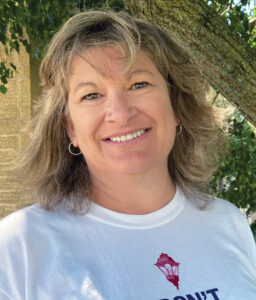 The end-of-life journey is a time when extra comfort and support is needed as patients and their families are often fatigued physically, emotionally and spiritually. A hospice caregiver is often faced with situations that can change daily or even hourly. Frequent medications, dressing changes, safety, toileting, feeding, and emotional support easily fills their day, and in many cases, their night too. In addition, there are situations in which a spouse or caregiver may never have prepared a meal. The patient is the one who always handled that daily task.
The end-of-life journey is a time when extra comfort and support is needed as patients and their families are often fatigued physically, emotionally and spiritually. A hospice caregiver is often faced with situations that can change daily or even hourly. Frequent medications, dressing changes, safety, toileting, feeding, and emotional support easily fills their day, and in many cases, their night too. In addition, there are situations in which a spouse or caregiver may never have prepared a meal. The patient is the one who always handled that daily task. Some of our volunteers simply cook a little extra when they are preparing a meal for their own family. Church group often use the left-overs from a community or church meal to make a yummy dish or soup.
Some of our volunteers simply cook a little extra when they are preparing a meal for their own family. Church group often use the left-overs from a community or church meal to make a yummy dish or soup. About 6 years ago, I was fortunate to be able to retire from a long career as a health care lawyer. After I retired I had to figure out what I wanted to do when I “grew up.” I decided I wanted to work directly with patients instead of working at a desk. While it was definitely not easy to find such a job without any experience and with my “maturity” eventually I was hired as a nurse’s aide in the Neurology Unit at Harrisburg Hospital. This was great because they provided the training I needed for the job. Being a nurse’s aide was about as different from a legal desk job as any job could be! It was fast paced, hands on, and never a dull moment! It provided me the opportunity to meet all types of people, from all walks of life and many cultures, to provide hands-on care and comfort, and to be a part of the patients’ and their families’ lives for a short period of time. Often, patients were so grateful for my small service that it was overwhelming to me. I learned so much about people and the world in general. It was one of the most meaningful experiences of my life.
About 6 years ago, I was fortunate to be able to retire from a long career as a health care lawyer. After I retired I had to figure out what I wanted to do when I “grew up.” I decided I wanted to work directly with patients instead of working at a desk. While it was definitely not easy to find such a job without any experience and with my “maturity” eventually I was hired as a nurse’s aide in the Neurology Unit at Harrisburg Hospital. This was great because they provided the training I needed for the job. Being a nurse’s aide was about as different from a legal desk job as any job could be! It was fast paced, hands on, and never a dull moment! It provided me the opportunity to meet all types of people, from all walks of life and many cultures, to provide hands-on care and comfort, and to be a part of the patients’ and their families’ lives for a short period of time. Often, patients were so grateful for my small service that it was overwhelming to me. I learned so much about people and the world in general. It was one of the most meaningful experiences of my life.
